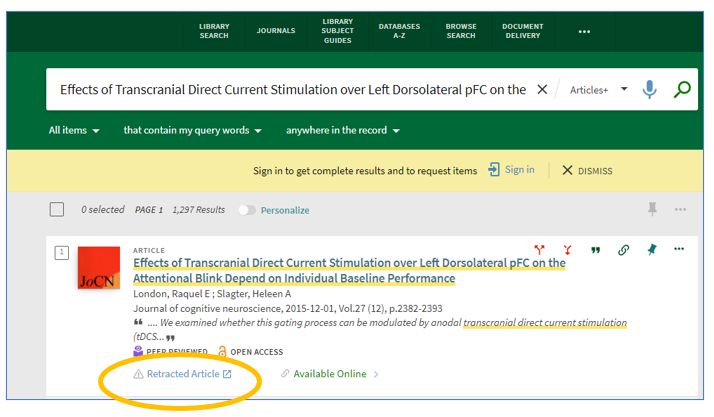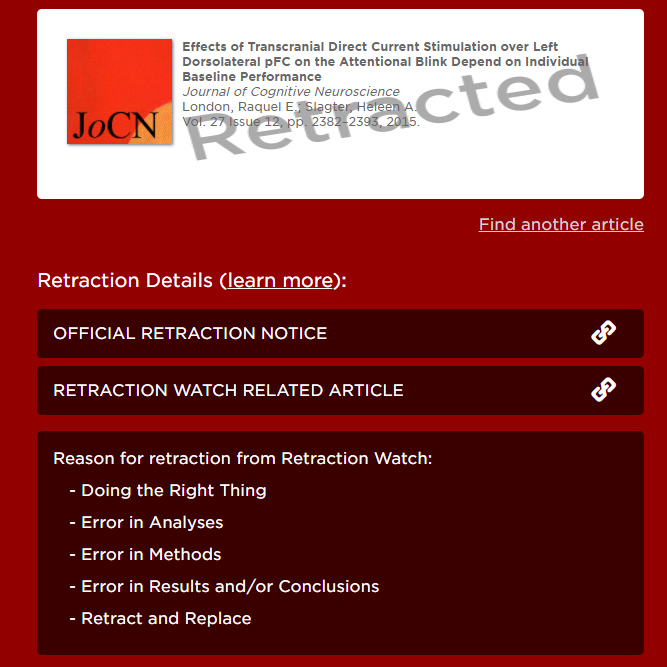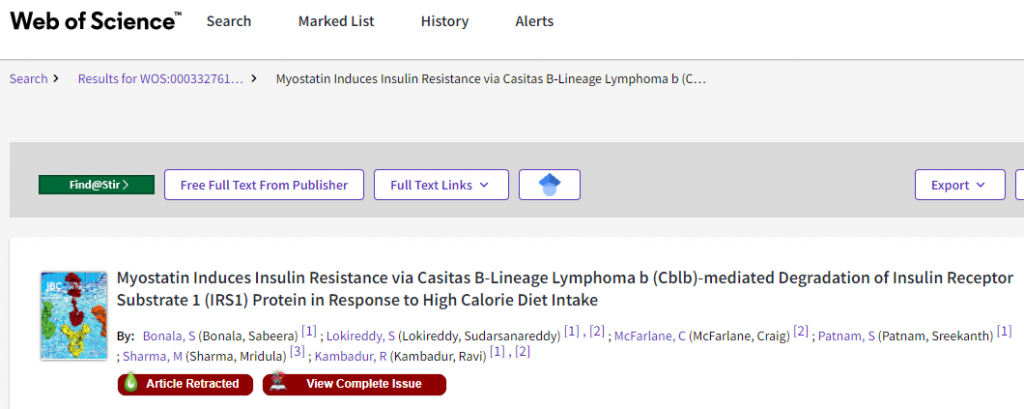You may not realise (but probably guessed) that sometimes journal articles may be retracted because they include either accidental or deliberate errors. The retraction could be due to incorrect experimental or interpretive errors and is to prevent readers from being misled and protects researchers from wasting time and resources by attempting to replicate or utilise flawed results and conclusions.
It can be surprisingly difficult to determine whether an article has been retracted. But our one-stop library search tool, LibrarySearch, can now help.
LibrarySearch results now show if an article has been retracted. For example, run a search for this article:
And you will see the article is labelled as a “Retracted Article”

If you click on the “Retracted Article” link you will be given additional information explaining why the article was retracted:

The data about retracted articles comes from an integration between LibrarySearch and our behind-the-scenes partner tool “LibKey”. LibKey has incorporated data from the Retraction Watch site (https://retractionwatch.com/). Retraction Watch is part of the Center for Scientific Integrity and was set up by two science writers when they realised that retractions of papers are generally not announced and that other researchers, or the public, who are unaware of the retraction could be making decisions based on invalid results.
If you use the LibKey Nomad browser plugin for accessing full-text of articles (highly recommended – see: https://libguides.stir.ac.uk/fulltextplugins) you will find retraction data has also been integrated into this plugin.
For example: in this Web of Science record where LibKey Nomad is integrated, the Article Retracted icon appears:

Likewise, if you have LibKey Nomad and go to the publisher’s site for an article, you may see this icon displayed at the bottom of the page for a retracted article:

Keep an eye out for these Retracted Article flags so you can avoid reading and citing these articles. You’ll be helping to prevent the continued spread of misinformation.
Clare Allan
Senior Research Librarian
